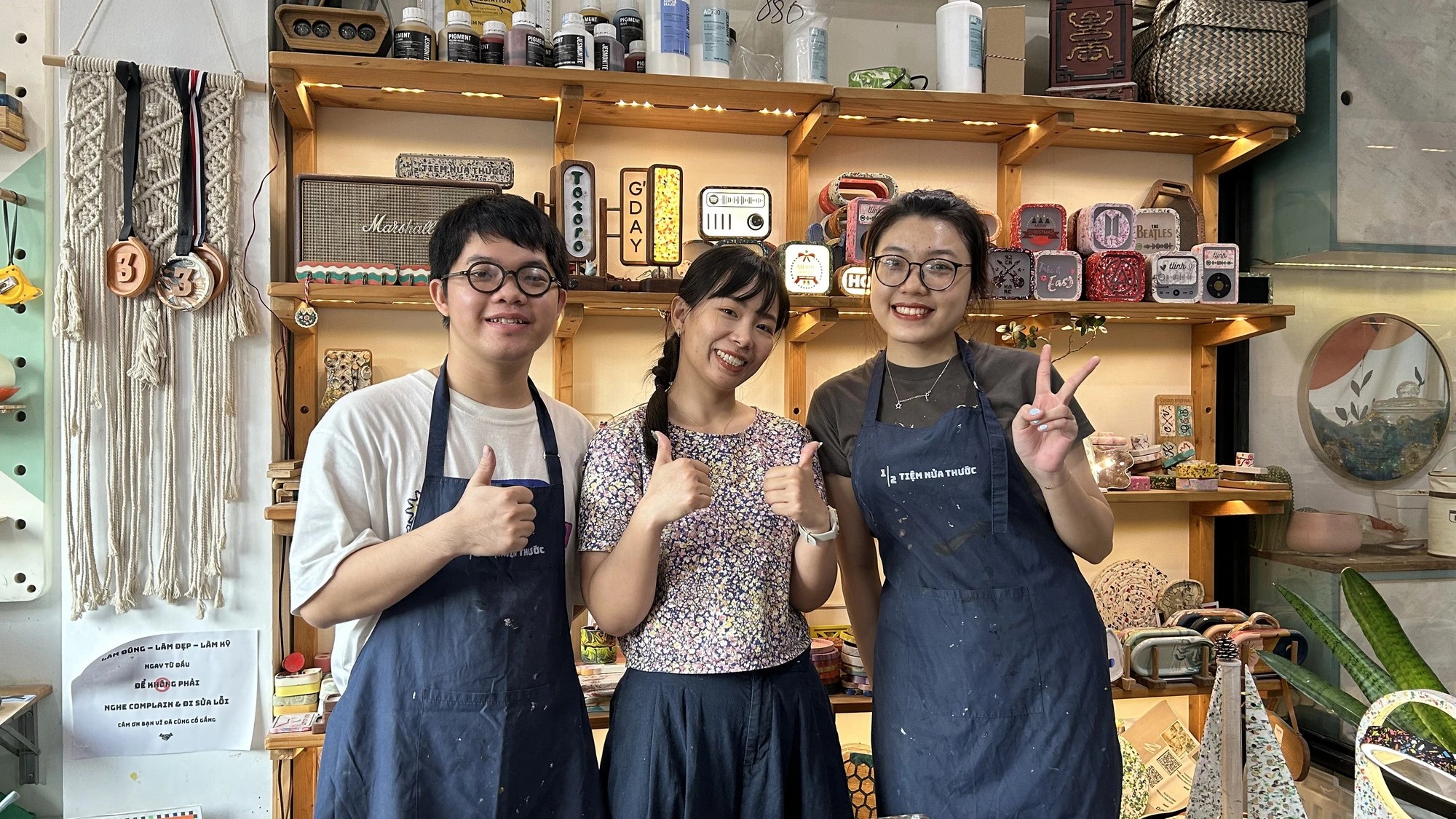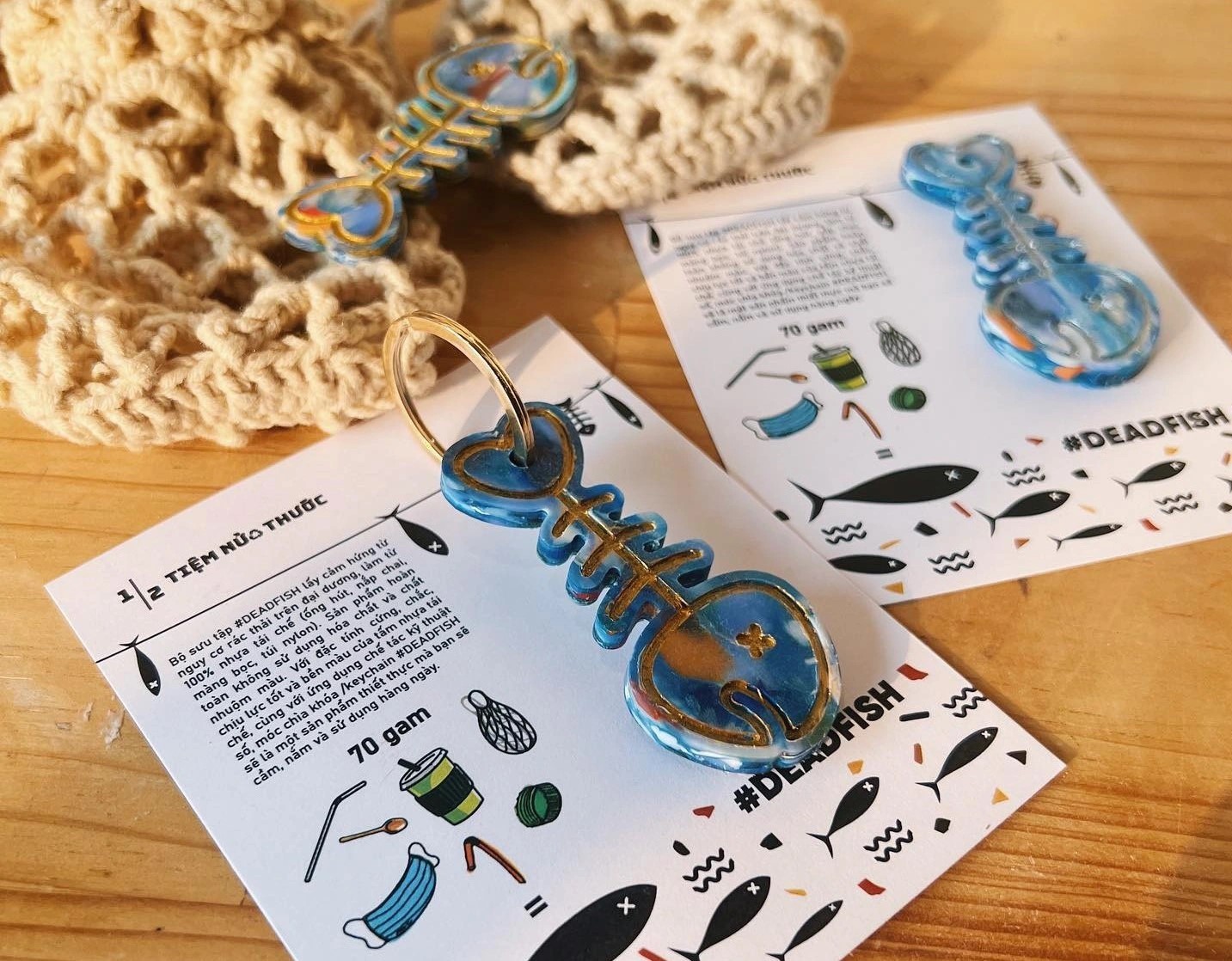“Green” and recycled materials are gaining popularity in Vietnam, thanks to the dedicated efforts of young individuals who are committed to building a sustainable and eco-friendly society.
Exploring “green” materials
At the age of 25, Nguyen Hoang An Khuong became aware of the negative impact of plastic waste on society and the environment. Motivated to find alternatives, Khuong established The Greenmart Vietnam, a company that focuses on providing everyday essentials, stationery, and clothing made from natural materials such as bamboo, grass, sedge, water hyacinth, and bulrush.
 |
| Tran Thi Thanh Tam (center) is dedicated to sustainable production, viewing it as the essential factor in creating environmentally friendly products. Photo: Khanh Huyen / Tuoi Tre |
In a similar vein, Tran Thi Thanh Tam, the 34-year-old founder of Tiem Thua Nuoc, also focuses on producing environmentally-friendly consumer goods by recycling plastic waste using jesmonite. Jesmonite is a durable and eco-friendly material that can bond with plastic and nylon to create new products using recycled materials.
Tiem Thua Nuoc’s recycling process involves molding broken pieces of plastics with colorant and jesmonite to create materials with distinctive shapes, colors, and patterns.
“While we cannot eliminate plastic entirely, we can repurpose and recycle it into useful items, reducing harmful waste in the environment,” Tam said.
The rise of sustainable production
Tam and her team actively promote eco-friendly materials and technologies to students through workshops on crafting with green materials.
These initiatives aim to inspire a trend of sustainable production, particularly in the fields of crafts, arts, and interior design.
Recently, a group of students from Ton Duc Thang University’s industrial design department transformed over 100 kilograms of plastic waste into a multi-functional CD player cabinet and a versatile wardrobe.
According to group member Nguyen Ngoc Yen Phuong, the group’s intention was to create unique, multi-functional products from plastic bags and bottles. They used patterns to convey the importance of recycling.
“The patterns of rounds and circles symbolize the circulation of recycled materials – a process where a used product is given a new life by being recycled for a different purpose,” Phuong said.
“With these two products, we are harnessing our creative capabilities and demonstrating our commitment to innovation by developing solutions for pressing environmental issues,” said Phuong.
 |
| Crafted with inspiration from the risks associated with plastic waste in the ocean, these keychain models are made from recycled materials, including straws, bottle caps, wrappers, and nylon bags. Photo: Tiem Nua Thuoc |
According to Duong Lien Trang Nha, a master’s degree lecturer in industrial design at Ton Duc Thanh University, young people are increasingly motivated to adopt green lifestyles and find solutions to environmental issues within their surroundings.
The use of recyclable materials is gaining traction in craft and design circles.
“Through education, young people can develop a solid awareness of using recycled materials as part of their everyday lifestyle. This understanding goes beyond being a short-term trend, empowering young people to be creative in crafting new products that are both safe and practical,” emphasized Nha.
Tuong Café
Tuong (Statue) Café is popular among young people, especially architects, in southern Ho Chi Minh City, not only for its delicious drinks, but also for the shop’s unique design and interior decoration. The place has become a rendezvous for many coffee lovers and those who want to relax after working hard.









